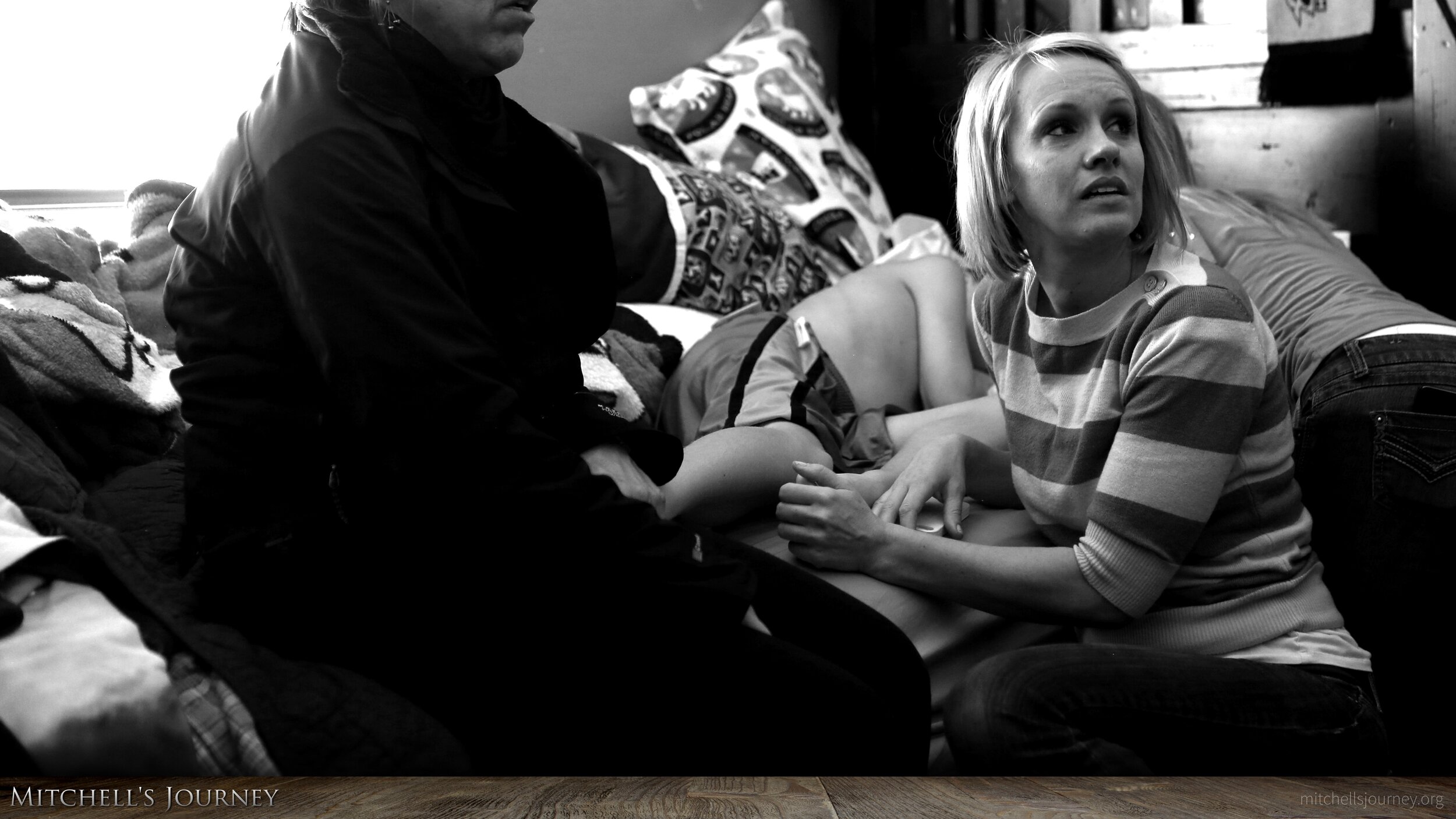Tucked away in a quiet corner of my home, deep in the shadows of a bookshelf, is a mold of my son gently holding my hand. This artifact is as close to seeing Mitch in physical form as I’ll ever see again in mortality. It's hidden from view, not because it isn’t special – but precisely because it is. I keep it tucked away so it can be safe from unintended harm.
This mold was taken just before Mitch came home from the hospital on hospice. If you look carefully, you’ll see a puncture wound, in the form of a small bump, on the back of Mitchell’s hand. It is just above his wrist, bearing a mark from an IV that had recently been removed. Were you to see this in person, the detail is breathtaking. Every bump, every little flaw, every little part that made him so beautifully human, was captured and preserved. Natalie has something similar with Mitch – except in that mold, a Band-Aid covers his IV wound, which makes it even more tender and unique.
“I discovered sometimes you can’t make sense of suffering, but you can make peace with pain. When that happens, it’s not that you stop hurting; you simply learn to live with longing. ”
At the time these molds were taken, Mitch didn’t know the doctors said he had days to live – and I’m pretty sure he just thought mom and dad were being weird. But then again, it always seemed he knew more than he let on. He not only had a look of knowing in his countenance, but he would also say things from time to time that revealed how deeply perceptive he was.
When I look at this life-size statue of my son and me holding hands, I see several conversations at once. First, a whisper between a father and his little boy, “I love you, son, so very much.” Then, “I love you, too, Dad. I know you’ll keep me safe.” At the same time, because I knew my son’s deadly secret, I see a one-way narrative, “Sweet boy, we’re almost out of time. Let me hold you before it’s too late – for tomorrow, I will miss you forever.”
The final unspoken narrative, at least to me, is symbolic of two souls drowning in a sea of trouble.
At least to me, this statue with my son contains a deeper metaphor; that of two drowning souls trying to comfort each other in their hour of need. As Mitchell’s life was being swallowed up by the sea, I felt like we were both drowning, only differently, me in grief and Mitch to biology.
My wife and I knew what was about to happen, and we felt like we were drowning in grief. Yet, we didn’t know how deep and dark those waters would soon become. As terrifying as grief was at the time, we were still splashing in the shallow end of sorrow. Deep grief would eventually come, years after the loss of Mitch.
Before I knew it, little Mitch was gone, and my wife and I were left feeling empty.
A few months later, the board of a company I was running pitched in and sent our family to Hawaii to get away and perhaps heal a little.
One night, while my family and I were on the shore, I took a photo of the sunset (seen in this image) and wrote the words, “Good night, little Mitch. You are always on my mind. And while I know you're not lost at sea, sometimes in my heart, you may as well be.” Then, Mark Allen, a thoughtful and inspired friend, commented on my post: “Consider him your lighthouse now... so you can make it back home...” I was grateful for his words of compassion and faith.
I’ve spent the last 7 years gathering up my broken pieces, healing one grief moment at a time. I’ve felt my way through the darkest shadows of death and tried to make sense of suffering. I discovered that sometimes you can’t make sense of suffering, but you can make peace with pain. When that happens, it’s not that you stop hurting; you simply learn to live with longing.
I still miss my boy. I think about him every day and wonder what memories we might have made. And when I see his childhood friends in our neighborhood, almost young adults now, I marvel how fast time has passed.
I still wonder what happens on the other side of life. You know that place over there … on the far side of the sea. Sometimes the waves of grief are so great they completely swallow me. Other times I wade softly in the water, smooth and placidly.
The struggle to keep from drowning has made me stronger and given rise to a different kind of me. I’m still flawed and tread water… but I see the world differently… thanks to my son, somewhere over there … on the far side of the sea.




